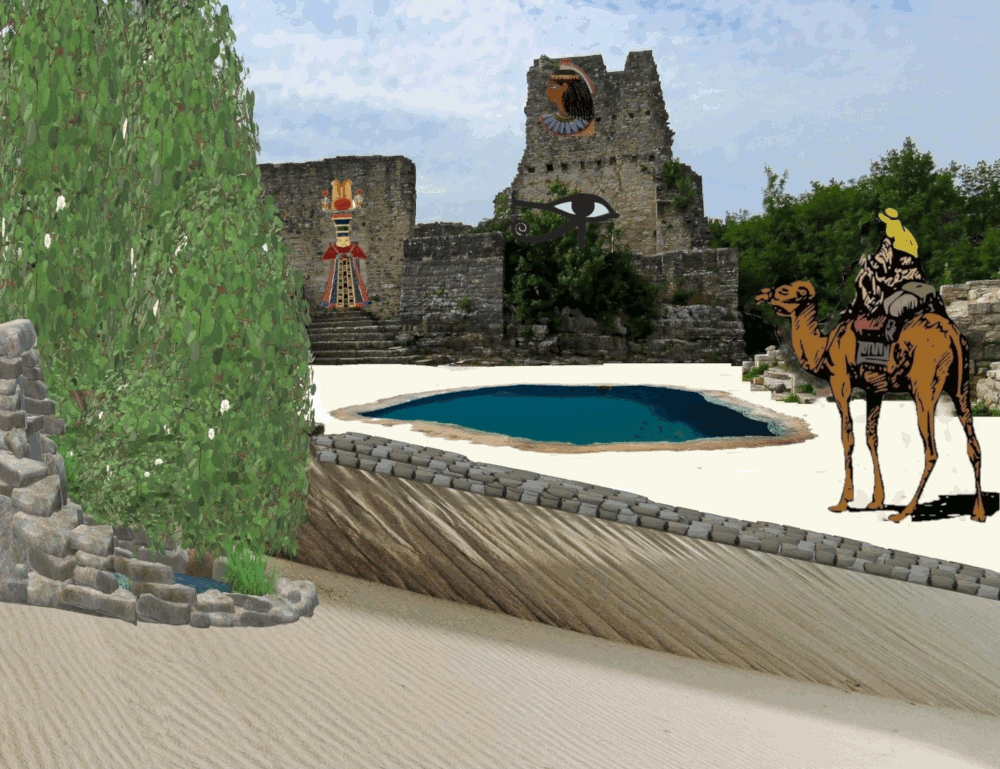

Is it possible the camel in my collage had ancestors that lived within the Arctic Circle? So it would seem. Beautiful, cold, Ellesemere Island may have been home to the first camels. Fossils--mere fragments from a large tibia--offer clues to the camel's origins. Identification of these fragments was possible through examination of collagen found in bits of bone. DNA from the collagen matched DNA from collagen in modern-day camels.
Fosheim Peninsula and Sawtooth Range on Ellesmere Island, Nunavut, Canada
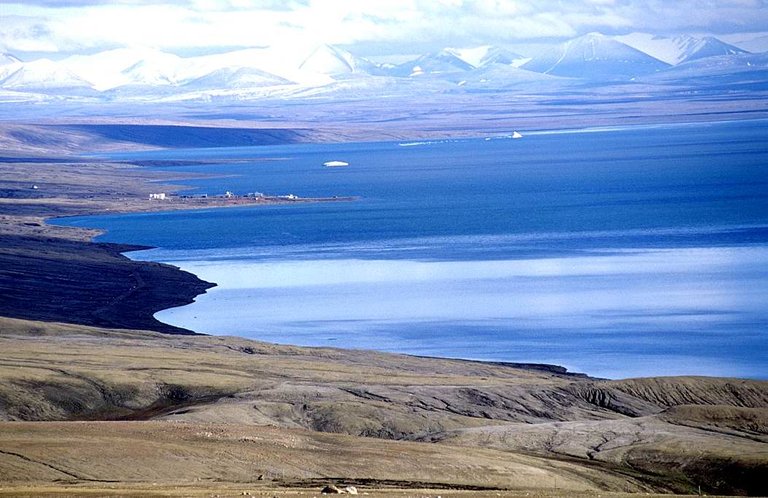
Picture credit: Ansgar Walk, CC 3.0 license.
The method of identifying fossils through collagen DNA is called collagen fingerprinting, and has been used to identify other fossils.
Here's a YouTube video that describes the discovery on Ellesmere Island.
It is believed that when early camels lived on Ellesmere, the earth's climate was warmer. It is also estimated that the Arctic camel was about 30% larger than today's camel.

Camels May Have Migrated Across the Bering Land Bridge
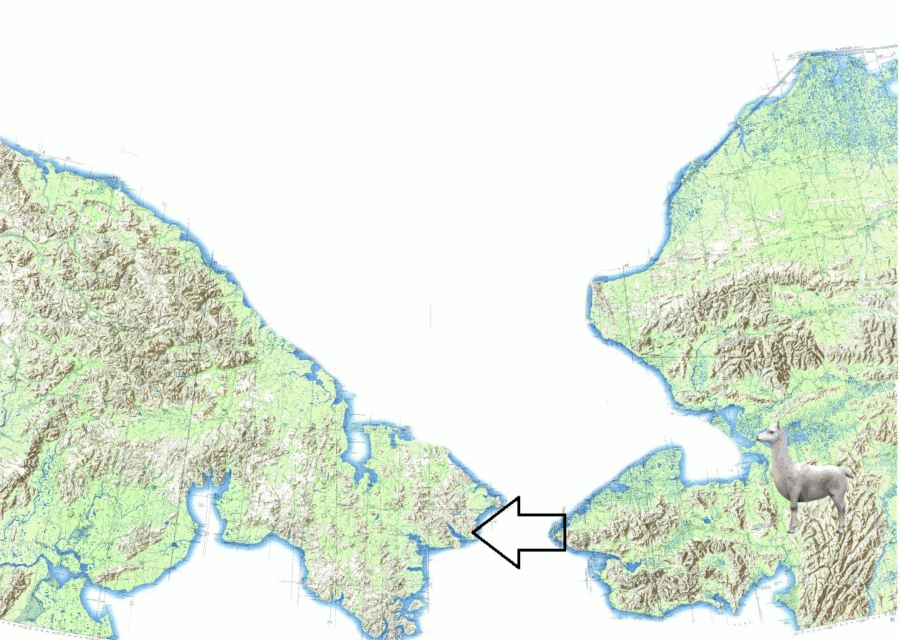
Map credit: U. S. Government. No copyright restrictions.
The theory is that the camels came to Asia by crossing the Bering land bridge between 3 and 4 million years ago.
I used Paint 3D to make this GIF. The alpaca had to serve because Paint 3D did not have a camel picture. However, the alpaca is in the camel family and also is believed to be a descendant of the Arctic camel. The Alpaca's ancestors went south into North and South America, instead of east into Asia.

Flat Camel Feet
One of the reasons a camel is sure-footed on snow, sand and rocky terrain is because it has large, flat feet. It also has two toes that spread apart when the animal stands. This results in a firmer stance.
The Two-Toed Camel
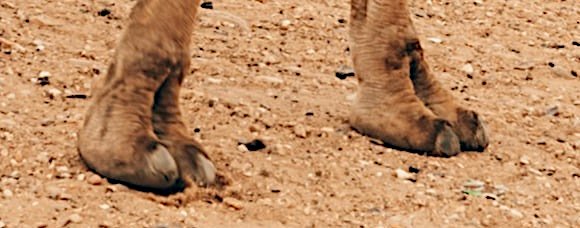
Picture Credit: Spencer Davis on Unsplash. Copyright free

Evolution of the Camel
Three camel species evolved from the early Arctic ancestor that migrated into Asia: the dromedary, the Bactrian, and the Wild Bactrian. Over the last 1000 years these species have physically adapted to different habitats.
The Dromedary
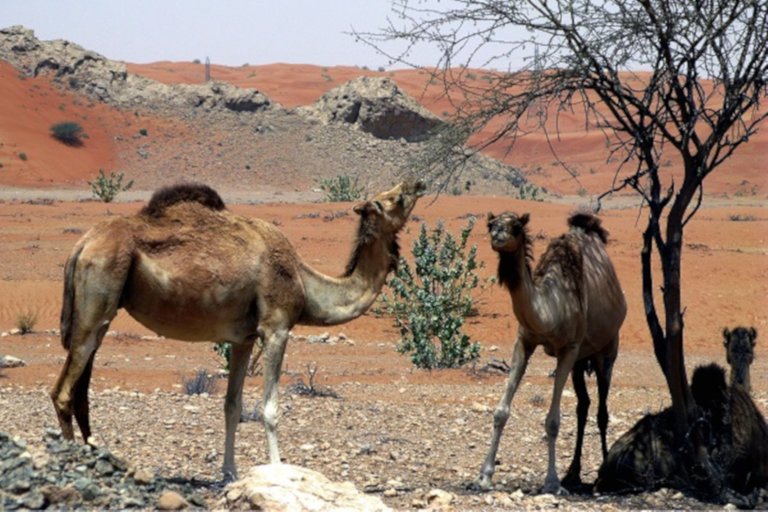
Picture credit: lonelyshrimp. Copyright free
Dromedaries have one hump. They are suited to arid, hot climates. They may be found today mostly in North Africa, on the Arabian peninsula and in Southwest Asia. There also is a significant feral population of dromedaries in Australia. These feral camels are descendants of those imported by settlers more than a hundred years ago. Many of the introduced camels were released into the wild, where they proliferated. Today the population continues to grow at a rapid rate.
The Bactrian and Wild Bactrian
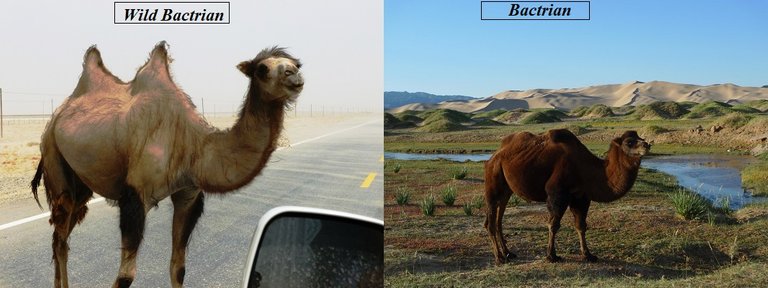
Picture credit, Bactrian: Alastair Rae from London, United Kingdom. CC 2.0
Picture credit, Wild Bactrian: John Hill CC 3.0
The Bactrian and Wild Bactrian have two humps. These camels may be found in only a few areas--in northwest China and in the Gobi Desert of southwest Mongolia. The animals' physiques are designed for survival. They can drink vast amounts of water at one time. The Wild Bactrian may even consume salty, brackish water without ill effect. They easily live in cold climates, with rocky terrain.
Wild Bactrian Camels are classified as critically endangered by the IUCN (The International Union for Conservation of Nature’s Red List of Threatened Species).

The Camel's Hump
The camel's hump does not hold water. It contains stored fat. When times are hard and food is scarce, the camel draws nutrients from the hump. After a period of scarcity, the hump may shrink and droop. In good times, when food is plentiful, the hump grows plump again.
Contrasting Well-Nourished and Poorly Nourished Camels
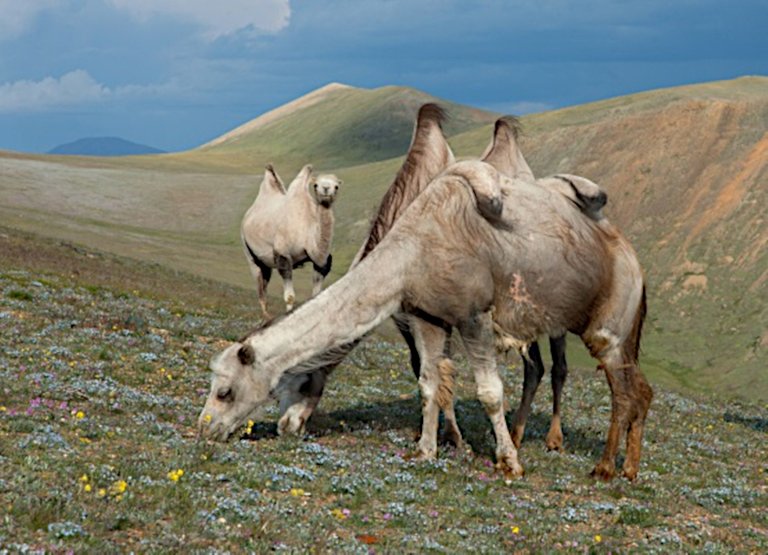
Picture Credit: Alexandr Frolov. CC 4.0
These camels are grazing in the Altai Mountains, Mongolia. The animal in the foreground has severely drooping humps, probably due to illness. Its companions seem to be doing fine.

Crossbreeding
I'll end on a racy note. The three species of camel mate successfully with each other. Often this crossbreeding is instigated by camel breeders. The hybrid offspring are considered to be more tolerant of weather variations, more compliant, and hardier than their purebred peers. The hybrids are fertile, but less so than their parents.

A Parting Look From a Thoughtful Camel
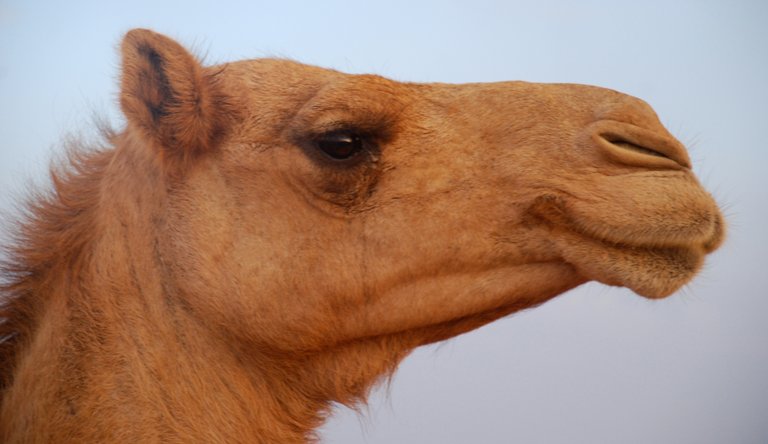
Credit: Henryhbk. Public domain.


My Collage
The template from which we worked in this #46th LMAC challenge was provided by @borjan, one of the most spectacular photographers on Hive.
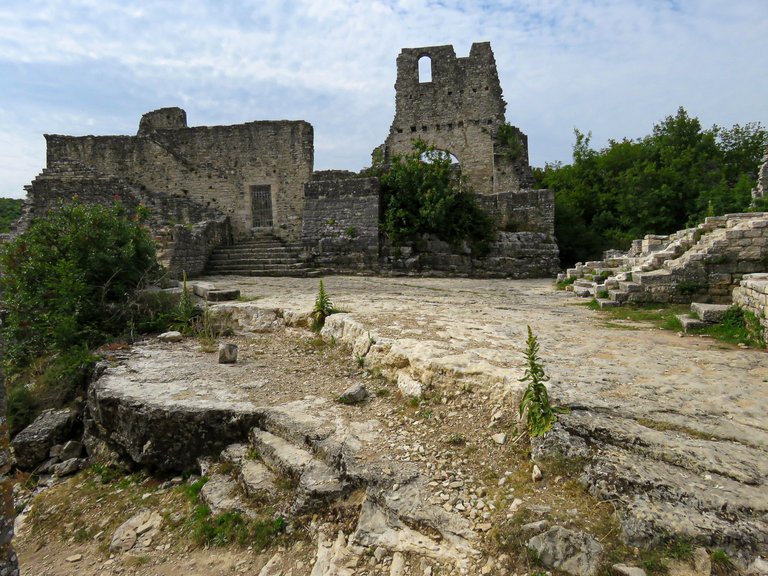 @Borjan's Photo
@Borjan's Photo
here.The first thing I noted in the photo was the suggestion (to me) of an eye. This became the center around which I worked. Apparently my friend @elcorrecamino also saw an eye, for he interpreted the same space brilliantly as an eye. His collage may be viewed
I knew I wanted to make an Egyptian-themed collage, and very soon in the process decided the camel would be important. After that, and many false starts, the idea of an oasis evolved. Elements in the collage are all public domain:
Eye: Pixabay
Bedouin on a camel: Pixabay
Egyptian profile on top of the building and figure descending the stairs: Unsplash
Watering hole:Unsplash
Dune: Unsplash
The design for the border GIF was extracted from the Unsplash source, previously cited
The shrubs and fountain in the foreground, and the rock border on top of the dune came from Paint 3D. I put everything together by juggling mostly between Paint and Paint 3D
Here's a picture of one of the earliest stages, when I was playing around and trying to figure out how I was going to develop the collage:
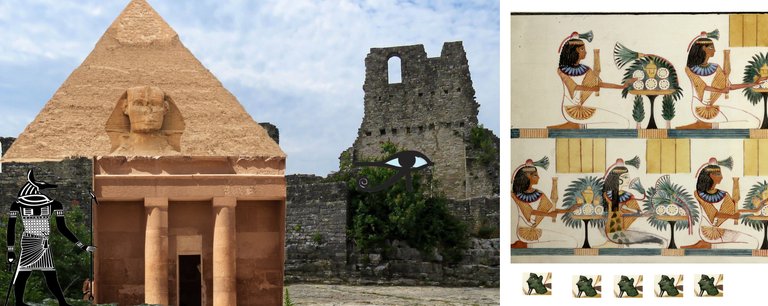
Eventually I placed the camel on scene:
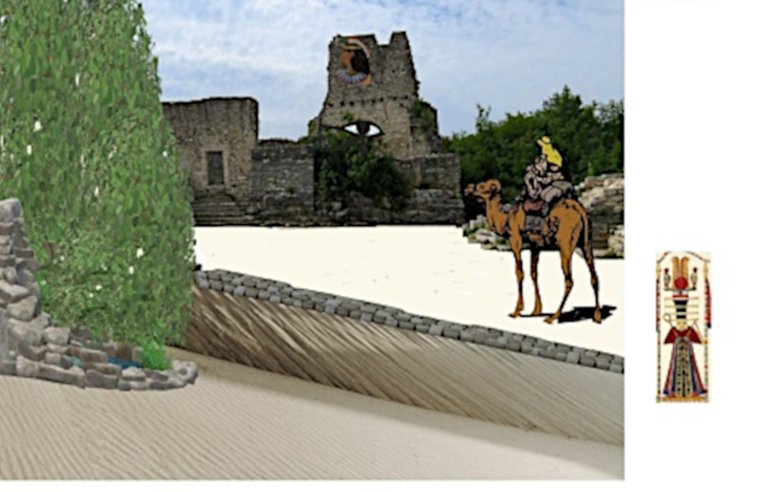
The scheme in my head was clear at this point. Getting there wasn't exactly easy :)

It's obvious I put a lot of time into this blog. A great experience, a wonderful, creative exercise. Food for the brain and the spirit. Thank you @shaka for nurturing a community of enthusiastic creators. Some of us are rank amateurs (me) but you open the door to everyone.
Take a look. They are wonderful!

 The collages in this week's round of entries may be found on @shaka's blog:
The collages in this week's round of entries may be found on @shaka's blog:
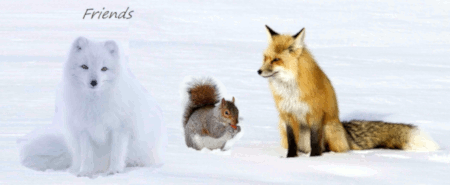
Hive on!
I very much loved the foreground shrubs, man that is beautifully created! Plus I don't remember myself reading in details about camel to this extent 😃
As expected, bang on post! Reblogged!
You are wonderful! Good for the heart :)
That's kind of you, my friend! 🤗
Dear AG,
Every time when I see shaka's new picture, I wonder what you will make of it. What a great idea to put a camel in the ruins landscape! The insight into the creative process, from the first concept to the final result, is very interesting.
Everyone who gets closer to your work will not only enjoy your creativity, but also appreciate all the information you provide. I just have learned many new and amazing things, not only about the arctic camel.
All the best, until the next time when you surprise us again with your ideas.
Anna
Dear Anna,
Thank you for that positive feedback. I love the blank slate of a photo. When @shaka offers these he makes no rules and invites us to let our imaginations roam. That's a universe in which I am very comfortable...I chafe against rules :))
As for the camels...it was all new to me. When I read about the fossils I was intrigued. The biggest challenge was winnowing down material so readers wouldn't get bored. Pictures help (once again, your posts set a good example).
Looking forward to your next blog, which is also always a surprise, even when you offer a preview as to subject. You've got the eye of an investigator and artist, captured with the skill of a photographer.
I hope the pesky virus moves away from Vienna, and you are once again able to fully enjoy your city.
Affectionately,
AG
Dear AG,
That's why I appreciate your work so much. You learn about new topics thoroughly and pass the information on to the readers in a very attractive and interesting way. This is how I came across topics I had not yet focused on. It's a pity that there are no extra points for this. The new photo is already out. I'm curious about the realization of your ideas.
Thanks for the wonderful compliment! I've never seen my work in this way before.
Affectionately,
Anna
Dear Anna,
There are extra points. There's you, and your wonderful comments. There are the kind people who appreciate the effort. This is a treasure for me :)
Thank you for the notice about LMAC...I have seen the picture and the wheels are turning. An interesting weekend ahead.
I just checked to see if your new blog is up...can't wait to see what you have in store for us. Have fun writing and exploring...most of all, stay well.
From steamy New York,
Affectionately,
AG
Dear AG,
My new blog is out and it's on a topic I think you might be interested in.
In a few days I will visit my home town. I'm looking forward to the mountains, the fresh air and above all to seeing my family again.
I wish you a cool breeze in steamy New York. Stay well my dear friend. 🌻
Affectionately,
Anna
Dear Anna,
I just visited you blog. Oh my heavens. What can a history addict say about this? The wonder of those relics! The Tabula Peutingeriana--I'm also a map addict. I enlarged my screen several times so I could see the details. Wonderful insight into life in the late Roman Empire. And the delicate papyrus...the way you trace the evolution of language and script.
It's hard to say I have a favorite of all your blogs, but this one comes near the top. The past lives in these artifacts. These were not works of art created to impress, but tools of every day life. And so they bring us closer to the people who created them.
That's a great description of how papyrus was made. Makes me wonder about the first people who sorted this out and used the invention for recording transactions, thoughts, histories.
Thank you for a spectacular trip to the distant past. Tonight, as I'm preparing to sleep, I will enjoy the pictures on my iPad. What dreams may these images bring?
From a peaceful corner of New York,
Affectionately,
AG
Dear Ag,
Wow, what an enthusiastic feedback on my post about the Papyrus Museum, thank you so much! Of course I had to think of you when I wrote the article.
Knowing you are a great history lover, I think Vienna could be a place of desire for you in this respect. Here, history comes across you at every turn, not only in museums. I 'm glad that I can pass on my enthusiasm for ancient cultures in my blogs. If I get then such a wonderful feedback, it makes me very happy and motivates me to continuing my journey through history.
With thankfulness and great affection,
Anna
Wonderful post. I never knew camels had such diversity or that there were so many in Australia! When I think of Australia I think of kangaroos, not camels. Well done!
Thank you! I'm really glad you liked the blog. I worked hard on it, and learned a lot about camels :)
Regards, AG
Very cool mix of creatures and civilizations :)
Thank you friend :) I had a great picture to work with.
:)
A wonderful collage. Thanks for info on camels. The camel and rider fit beautifully into the scene.
Thank you very much. I love animals. Looking at camel pictures is great fun for me :)
As always your collage full of history. your creativity is admirable.
Thank you, @tormenta. I have studied history...that's (relatively) easy for me. I don't know much about art...that's fun, but not easy :)
Well, with all respect and sincerity, I tell you that it combines history and art very well.
Thank you dear... I keep trying :)
A picture or in this case a collage is worth a thousand words.
Good job!
Yes, the eye... ^^ I saw it too, before I took a closer look onto the photo.
Thank you! I was sure everyone would see the eye, but I couldn't resist it :)
TWEETPOSH
Congratulations @agmoore! You have completed the following achievement on the Hive blockchain and have been rewarded with new badge(s) :
You can view your badges on your board And compare to others on the Ranking
If you no longer want to receive notifications, reply to this comment with the word
STOPDo not miss the last post from @hivebuzz: